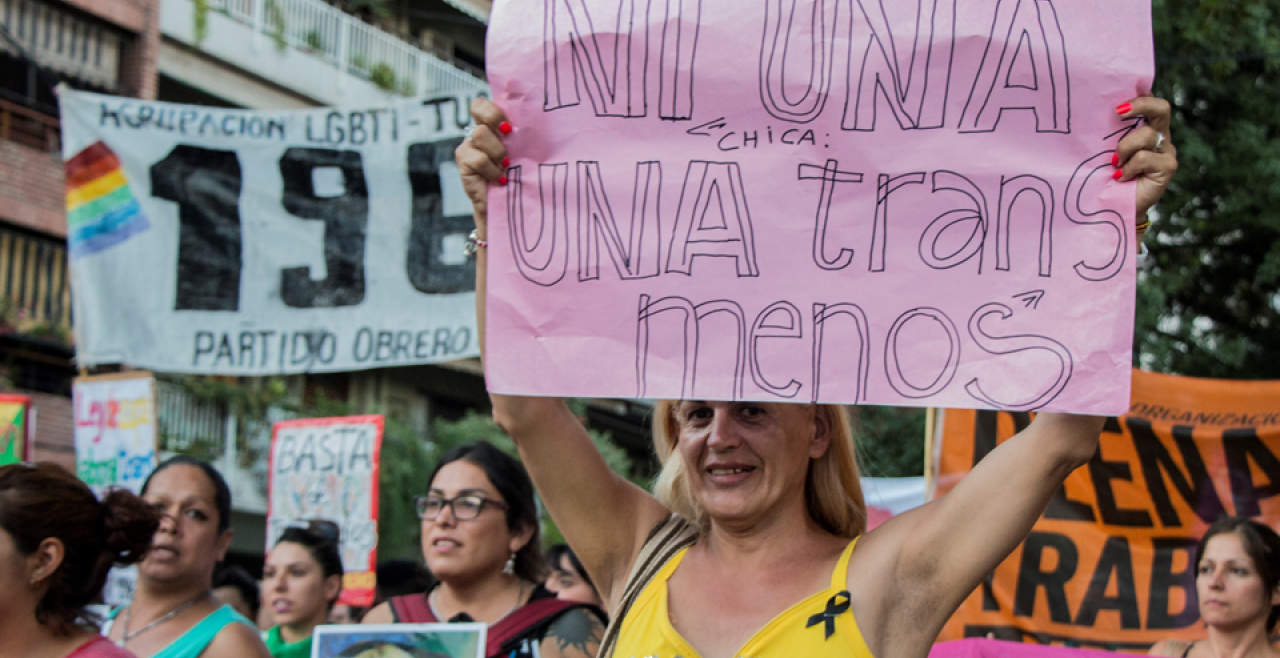Movement building: Investing in women's movements to end violence against women

“Social movement requires collective power beyond a small group to build and sustain a long-term change”
The increase in social mobilizations, powered by generations of grassroots civil society organizations, is a defining feature of recent work to end violence against women and girls. Investing in women’s movements for the empowerment of civil society and women’s rights organizations is also one of the main goals of the Spotlight Initiative’s Outcome 6 that the UN Trust Fund to End Violence against Women (UN Trust Fund) is entrusted to help realize.[1]
Gertrude Shumba, Executive Director of Family AIDS Caring Trust (FACT), a UN Trust Fund grantee under the Spotlight Initiative that works with self-identified female sex workers and young women in Zimbabwe, explained the importance of this approach:
“This investment entails employing more long-term funding strategies [because] before real change can be realized, long-term funding is needed to allow community movements to become established.”
In 2020, civil society and women’s rights organizations are responding to unprecedented challenges posed by the COVID-19 crisis, including a sharp rise in the “silent pandemic” of violence against women and girls. Their experiences prompted the Spotlight Initiative to allocate an additional USD 9 million to immediately support all existing UN Trust Fund grantees in sub-Saharan Africa, some with an extension of project duration. With this timely aid, UN Trust Fund grantees are:
- investing in help centres so women at risk of violence and survivors can secure temporary shelter;
- Establishing a women's taskforce to ensure inclusion of women survivors’ needs in COVID-19 response and recovery plans; and
- strengthening outreach efforts on ending female genital mutialtion (FGM), which is on the rise, through online, TV and radio messaging to reach women and girls.
Simultaneously, grantees are also sharing what is needed, and how donors can support their work to address violence against women and girls. Among them, the Integrated Disabled Women Activities (IDIWA), a women-led organization in Uganda, is leading a project to eliminate sexual and gender-based violence against women and girls with disabilities. Executive Director Elizabeth Kayanga shared their perspective:
“Donors need to strengthen the capacity and create space for women’s rights organizations, [especially] organizations of young people and women facing intersecting forms of discrimination [as] social movement requires collective power beyond a small group to build and sustain a long-term change.”
In this context, the UN Trust Fund is rapidly adjusting its operations and strategies to respond to the urgent needs of its grantees. Charlotte Lecomte, Resource Mobilization Analyst at the UN Trust Fund shared:
“Through consistently amplifying the voices of its grantees and sharing knowledge generated within this urgent context, the UN Trust Fund continues to highlight within the donor community the importance of building the case for long-term support to women's rights organizations, in order to preserve the progress so far achieved by women's movements globally.”
Properly resourcing and fostering women’s movements and women’s rights organizations not only financially but also institutionally will allow these forces to advance global efforts to end violence against women and girls, and ensure that the voices of a wide range of women and girls, including the most marginalized, are heard.
[1] Spotlight Initiative. Annual Report 1 July 2017 – 31 March 2018.
Originally published by UN Trust Fund to End Violence against Women
